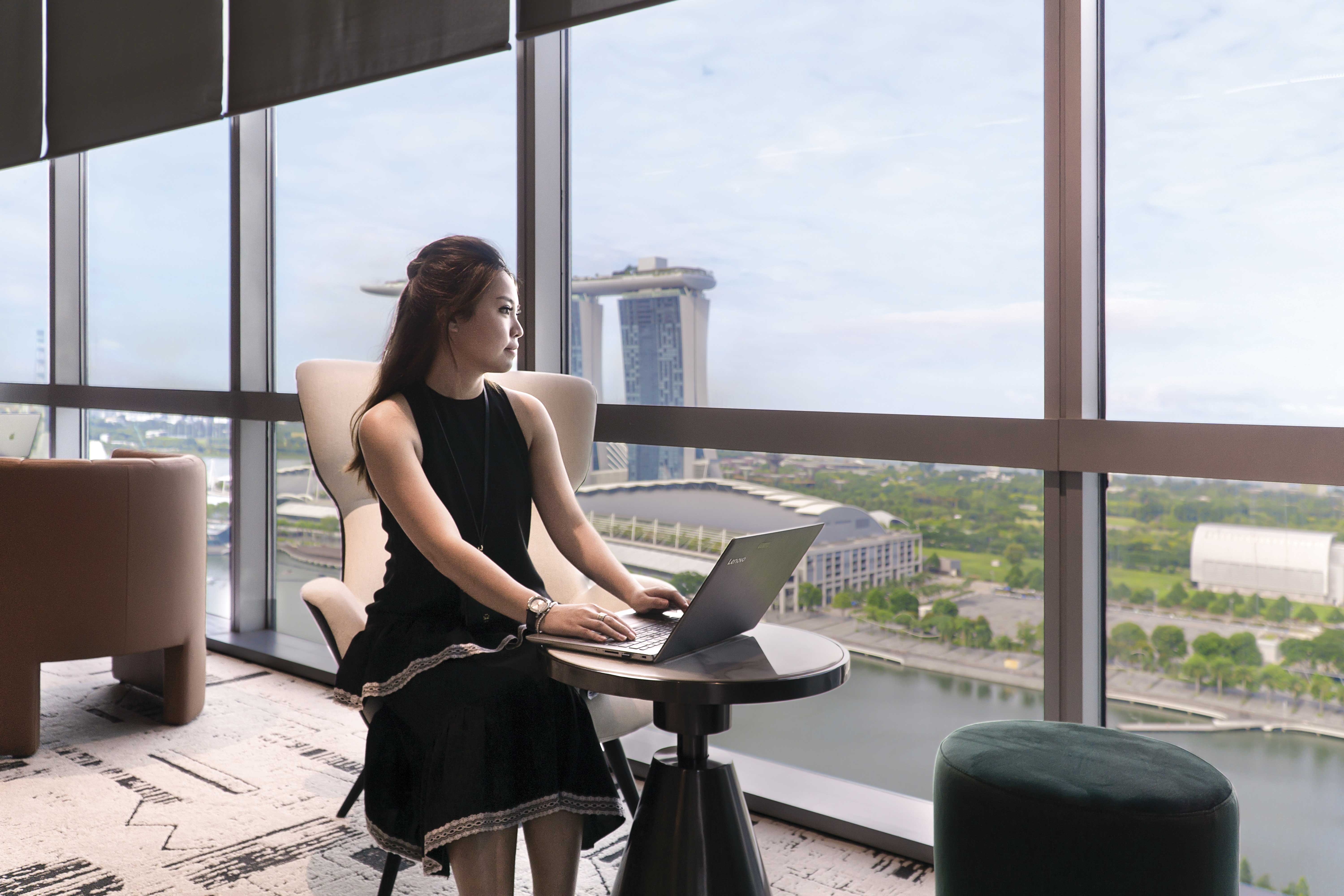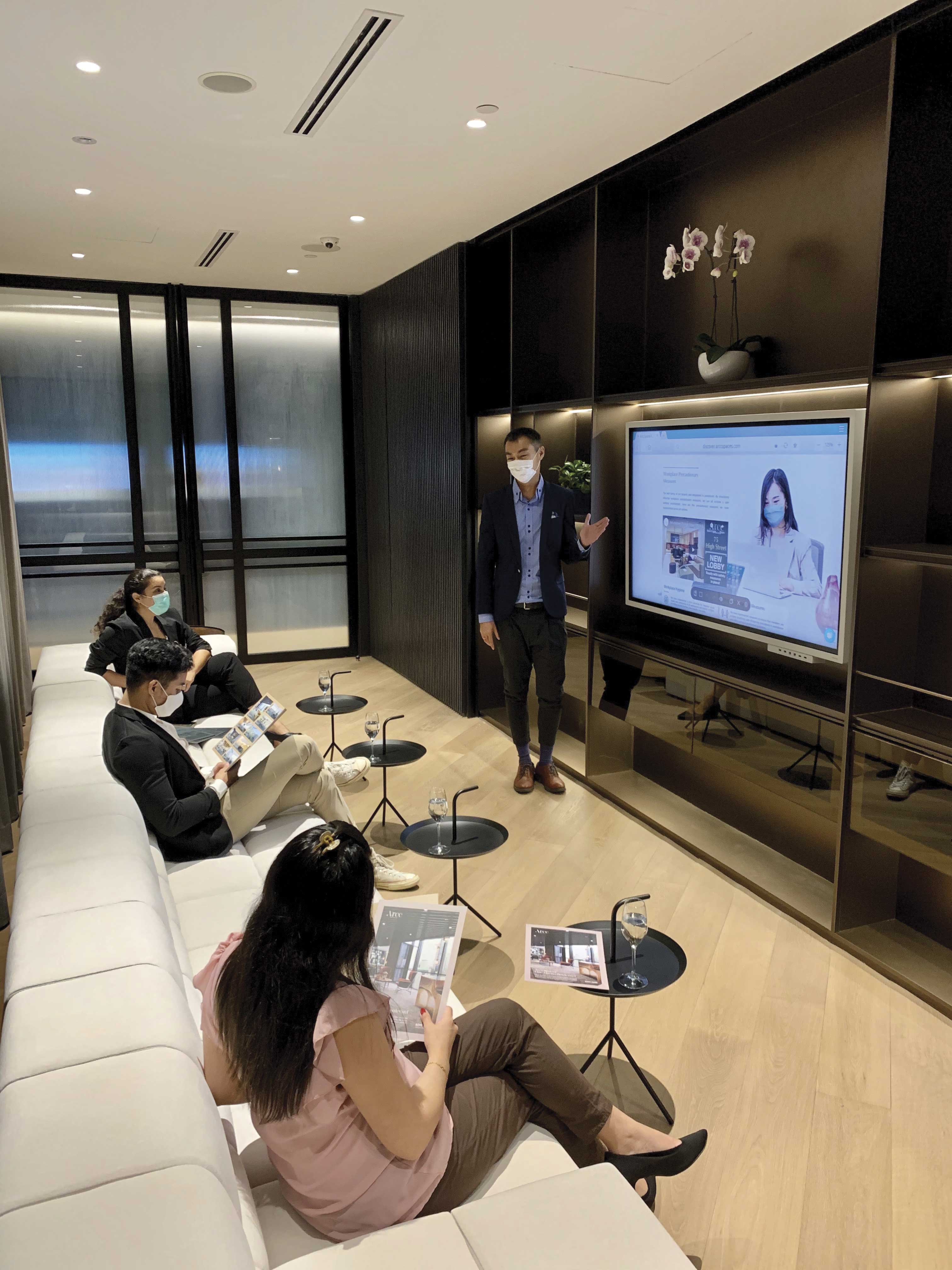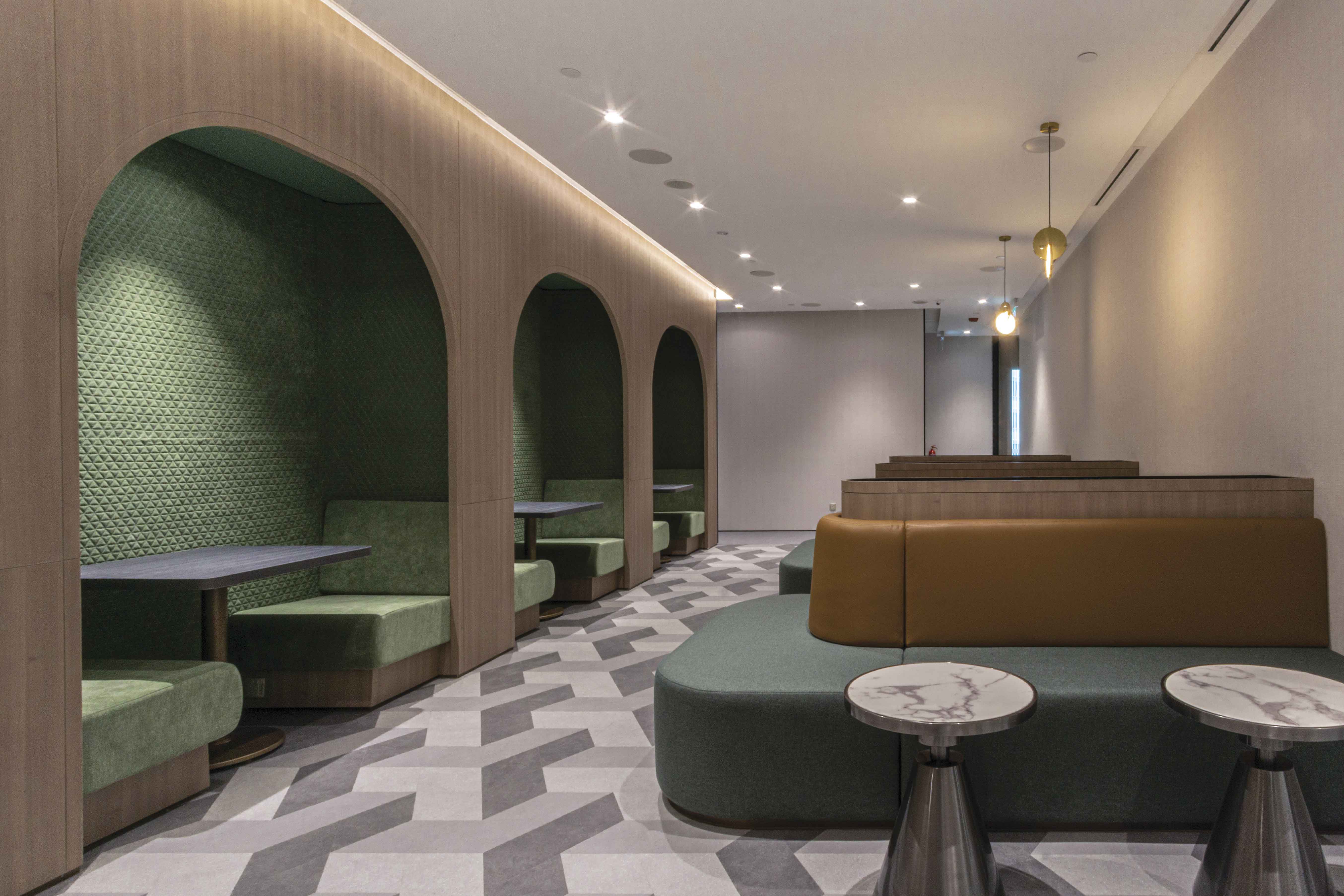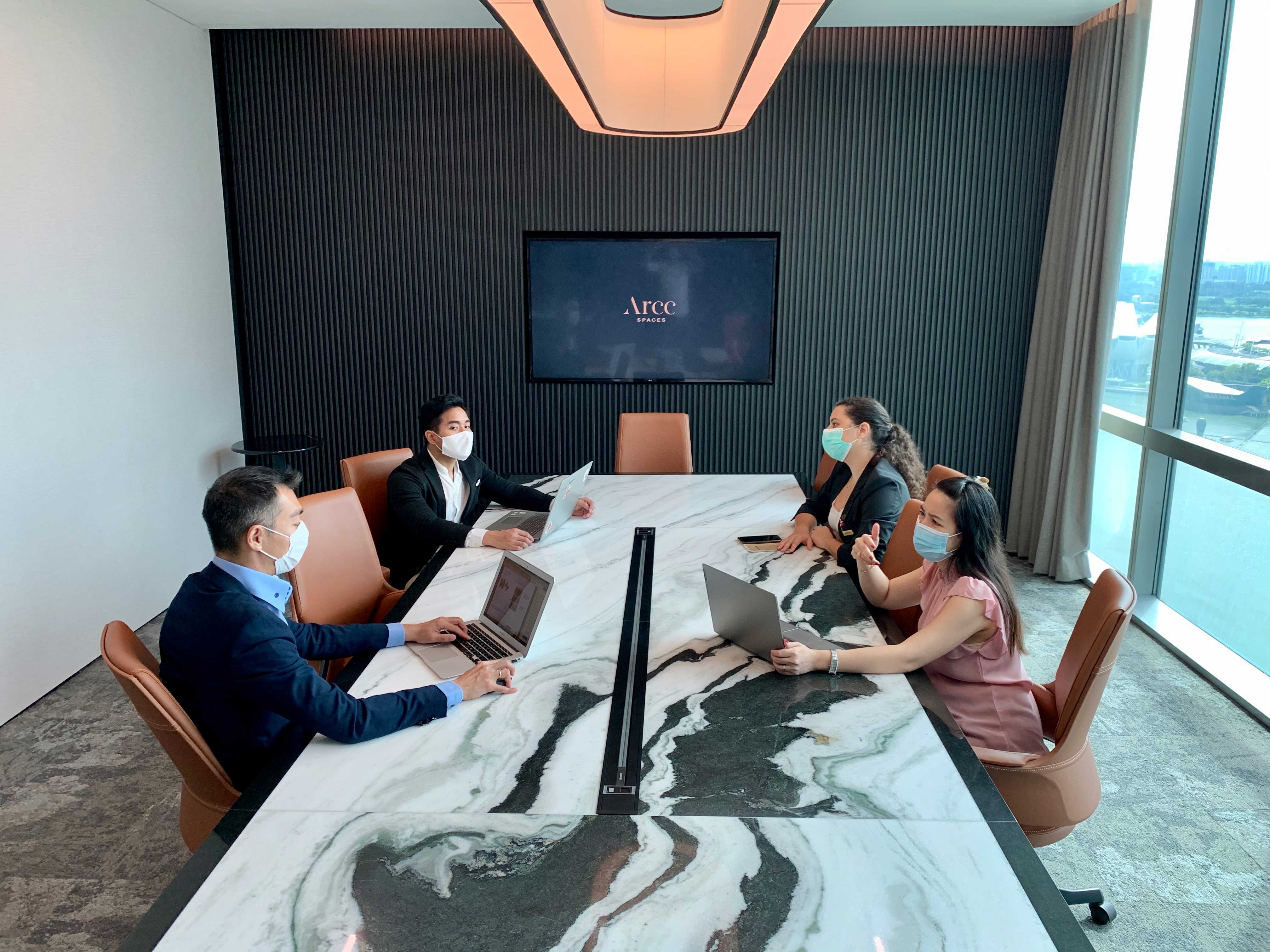In the past decade, office solutions have gone through numerous experimentations, such as debating between open-plan spaces and closed-up cubicles, in a bid to argue which environment brings about optimum productivity. In 2005, co-working spaces were introduced as an option in efforts to reinterpret an office that’s more than just a grey box, but as an area for transparency, community, and networking.
Statistics have shown that demand for flexible workspaces have only increased since then, leading to over 20,000 co-working spaces worldwide. So where do we go from here?
Justin Chen, CEO of Arcc Spaces, believes that this is the chance to make offices more human. “Our flexible workspaces can’t just be an aesthetic exercise; our centers have to be designed to take into account the daily behaviors, needs, and considerations of the users in the space.”
Arcc Spaces belongs to a greater portfolio of Arcc Holdings that specializes in commercial real estate. The shared workspace brand has 16 locations across Asia, including Malaysia, Beijing, Shanghai, and Hong Kong with headquarters in Singapore.
An architect by trade, Chen now leads Arcc Spaces on concept design and office solutions, creating beautiful and conducive business hubs.
 The event space at the One Marina Boulevard office comes with a view
The event space at the One Marina Boulevard office comes with a view
It is perhaps common knowledge that architecture is about designing buildings on form and function. What Chen strives to emphasize is the human element: How people use space.
He attributes this to the early years in his career when he realized how culture and history shaped cities’ built environments. “After college, I started my career in planning and designing retail spaces for brands in the US.
That experience taught me how design and business can really be partners and the importance of creating a space with a deep understanding of the customers. This cemented my love for the intersection of design and business – which is something I bring to Arcc Spaces and implement in every project.”
 The library at the OMB office doubles as a meeting space
The library at the OMB office doubles as a meeting space
- THE PRINCIPAL SPACE
- THE WAY FORWARD
The Principal Space
The flagship co-working space in Singapore is at 19,000 sq ft, taking up the entire 20th floor of One Marina Boulevard. The perimeter comprises floor-to-ceiling glass windows, with views of Marina Bay and the inner Central Business District.
“For this project, we partnered with one of Singapore’s award-winning design firms, Formwerkz Architects, to create a working ecosystem for our members, providing them with a premium working environment with different business settings based on their needs, work-life balance experiences, and convenience. These are important for attracting and retaining talents,” Chen explains.
The space boasts more than 60 offices, as well as a boardroom, meeting rooms, fully-equipped pantries, a multi-functional event space, and an auditorium. “As more companies seek to re-establish a physical presence to support their work culture and sense of belonging, there will be a drive for the office to be a place for collaboration, engagement, and socializing. I see shared workspaces like Arcc Spaces supporting this growing trend.”
Arcc Spaces prides itself on being hospitality-led, allowing bespoke measures for their clientele, from breakfast needs to facilities set-ups. Operations begin as early as seven in the morning before the doors open at nine. Upon entry, a concierge greets you by name, before you pick up your breakfast at the lounge – an order dutifully and routinely prepared by the hospitality team.
 One of the well-designed pantry spaces at the OMB Office
One of the well-designed pantry spaces at the OMB Office
Irene Loh, who heads the hospitality team at Arcc Spaces OMB, shared that with the provision of in-house internal architecture, interior design, and IT teams, creating an office space is simply tailored to one’s needs. She gestured to two adjacent units that could be joined together via a connecting corridor and it will be fully furnished with an ideal layout without the overcrowding, as is the habit with traditional offices.
Sustainability practices are widely adopted here, where besides recycling implementations, they’ve formed a partnership with Brunner Asia Pacific, a premium European furniture manufacturer, to provide quality furnishings that are made of durable materials and changeable parts to minimize waste.
Chen shares, “Leveraging on our data and experience has provided us with insights into the design of the most heavily trafficked and used areas of the office, which inform the choice of appropriate and quality materials. This is a long-term view that dictates how we consider ways to minimize replacement.
If we do have objects that we have purchased but no longer need, end-of-life recycling and disposal programs are the best approach. This way, items can be repurposed, reused, or donated.”
 The boardroom at OMB overlooks the Marina Basin
The boardroom at OMB overlooks the Marina Basin
- THE PRINCIPAL SPACE
- THE WAY FORWARD
The Way Forward
Chen plans for Arcc Spaces to be a one-stop solution for companies who are looking to develop their own culture and team productivity. When asked if this should be the direction businesses should be heading towards, he injected that the world’s current state of affairs have accelerated this thought process.
“The COVID-19 pandemic has definitely challenged a lot of companies to reconsider what the purpose of the office space is. We have seen that with the trial of remote working arrangements and working from home, and not all modes of working have flourished,” he reveals.
“There is no one-size-fits-all solution to workspaces. Therefore there is an opportunity to see shared workspaces become more diverse and differentiated as they adjust and cater to more specialized needs and requirements.”






 The event space at the One Marina Boulevard office comes with a view
The event space at the One Marina Boulevard office comes with a view
 The library at the OMB office doubles as a meeting space
The library at the OMB office doubles as a meeting space
 One of the well-designed pantry spaces at the OMB Office
One of the well-designed pantry spaces at the OMB Office
 The boardroom at OMB overlooks the Marina Basin
The boardroom at OMB overlooks the Marina Basin
 Back
Back
